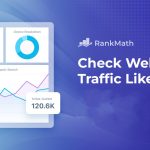Understanding Google’s Indexing Process
How Google Discovers Websites
Google’s process for discovering new websites is primarily driven by links. When an existing indexed site links to a new site, Google’s crawlers, also known as spiders, use these links as pathways to discover new content. This method underscores the importance of backlinks in SEO indexing. A robust backlink from a reputable site not only drives direct traffic but also signals Google to consider the linked-to content for indexing. This is where a backlink indexer can play a pivotal role, helping expedite the recognition of these links by Google’s algorithms.
The Role of Sitemaps in Indexing
Besides discovering content through backlinks, Google also allows webmasters to directly submit a list of pages they want to be indexed through sitemaps. A sitemap is essentially a roadmap of your website that you can submit via Google Search Console. This practice is particularly crucial for websites that frequently add new content or have pages that are not easily discoverable by Google’s crawlers through links. Utilizing tools like a website indexer can ensure that all new and updated pages are recognized and indexed by Google more efficiently.
Indexing Versus Crawling
It’s important to distinguish between crawling and indexing. Crawling refers to the process by which Googlebot visits new and updated pages, adding them to Google’s list of pages to be indexed. However, just because a page is crawled does not guarantee its indexing. Indexing is the process where Google analyzes a page, understanding and storing its content in a way that will serve relevant queries. This stage involves assessing the quality of content, site structure, and user engagement metrics, which are critical for a page to be added to the index and ranked accordingly.
Common Challenges in Google Indexing and How to Overcome Them
Dealing with Indexing Delays
Indexing delays are a common challenge, particularly for new websites or those with deep, complex structures. Understanding the reasons behind these delays—such as poor site structure, low-quality content, or inadequate backlinks—can help in devising effective solutions. Regular audits and adjustments can mitigate these issues, ensuring more consistent indexing.
Navigating Algorithm Updates
Google’s frequent algorithm updates can sometimes disrupt existing indexing patterns. Staying informed about these changes and adapting your SEO strategy accordingly is crucial. This may involve refining your content, enhancing your site’s user experience, or adjusting your backlink strategy to align with the new algorithmic preferences.
Addressing Technical Issues
Technical issues like server errors, incorrect robots.txt settings, or poorly implemented redirects can hinder Google’s ability to index your site. Regular technical SEO audits are essential to identify and resolve such issues promptly. Ensuring technical robustness can significantly improve your site’s indexing status and overall SEO health.
Future Trends in Google Indexing
The Evolution of AI and Machine Learning
Artificial intelligence and machine learning are playing increasingly significant roles in how Google indexes and ranks websites. These technologies enable Google to better understand page context and user intent, making accurate indexing more critical than ever. Adapting to these technologies by optimizing for semantic search and improving content relevance can help maintain a competitive edge.
Increased Importance of Mobile Indexing
With the shift towards mobile-first indexing, ensuring that your website is optimized for mobile devices is more important than ever. This involves responsive design, fast loading times, and mobile-friendly navigation. Prioritizing mobile usability can enhance both user experience and indexing effectiveness, aligning with Google’s focus on mobile.
The Rise of Voice Search Optimization
As voice search becomes more prevalent, optimizing for this new way of searching is becoming crucial. This involves focusing on conversational keywords and providing clear, concise answers to common questions. Adapting your SEO strategy to include voice search optimization can ensure better indexing and visibility as this trend continues to evolve.
Conclusion
Understanding and leveraging Google’s indexing process is essential for anyone looking to improve their website’s online visibility. While Google does not automatically index every website, taking proactive steps in site optimization, content quality, and technical readiness can greatly enhance your chances of being noticed and ranked favorably. By keeping abreast of the latest trends and changes in search engine algorithms and adapting your strategies accordingly, you can ensure that your website not only achieves but maintains a robust presence in Google’s search results.






